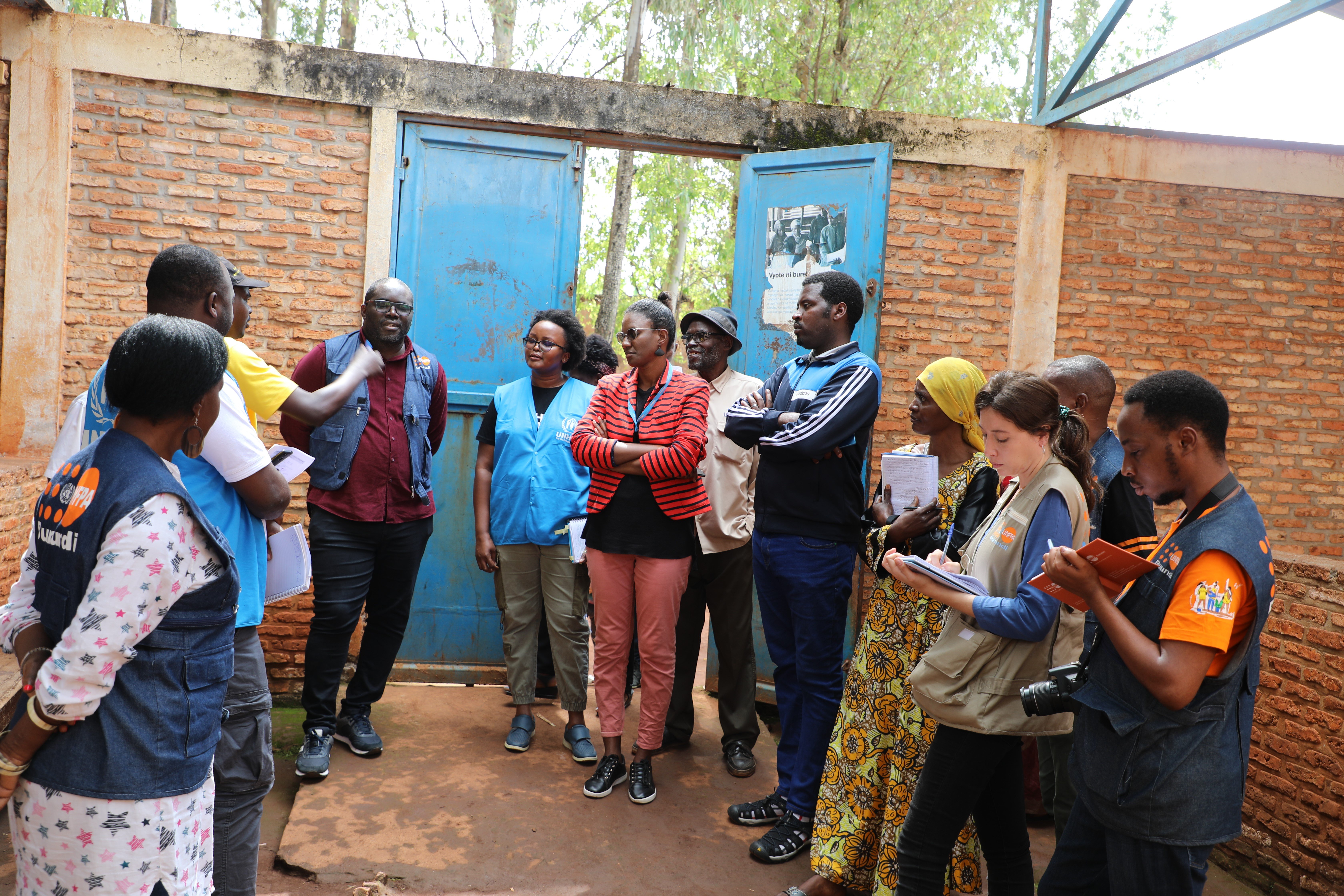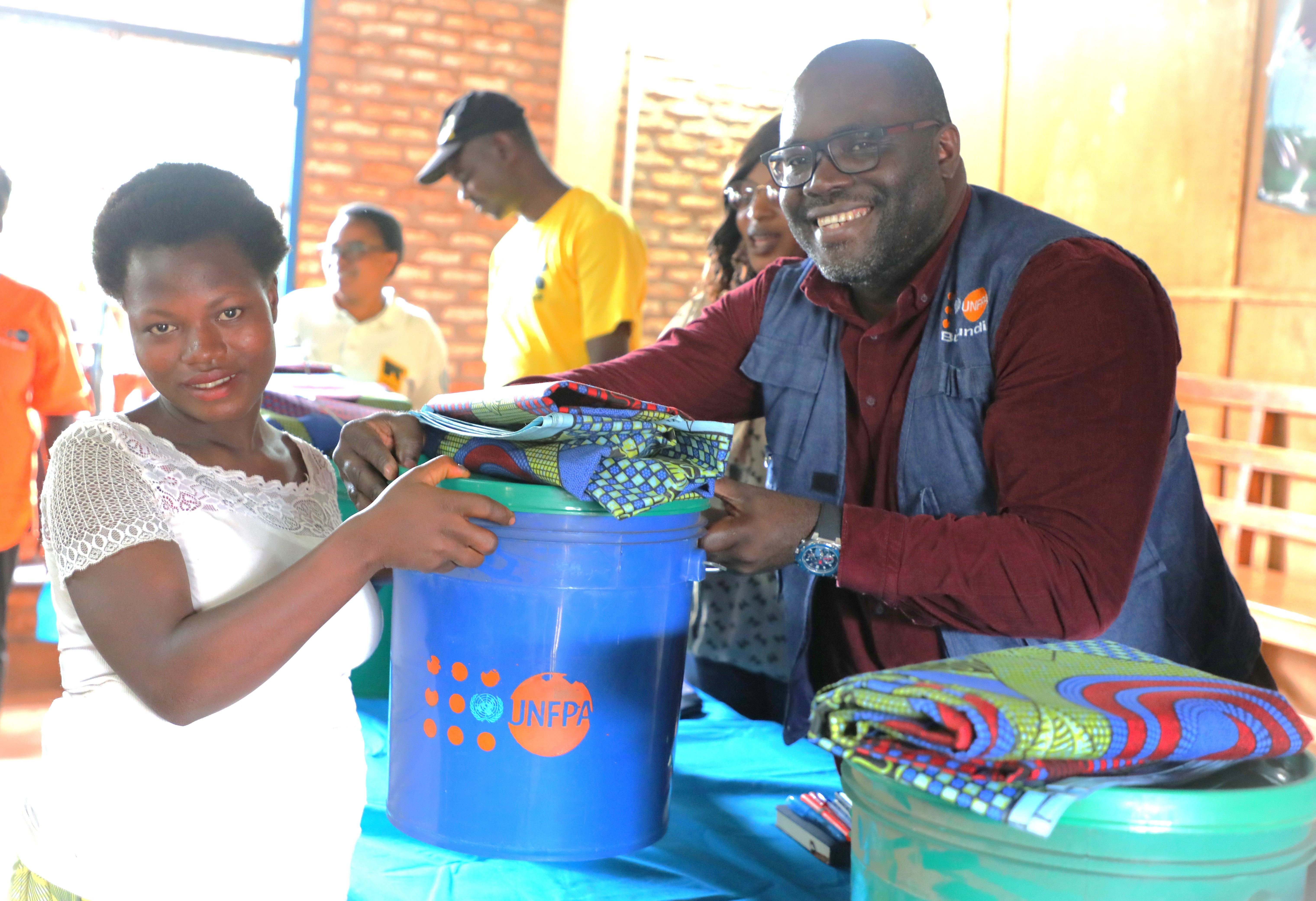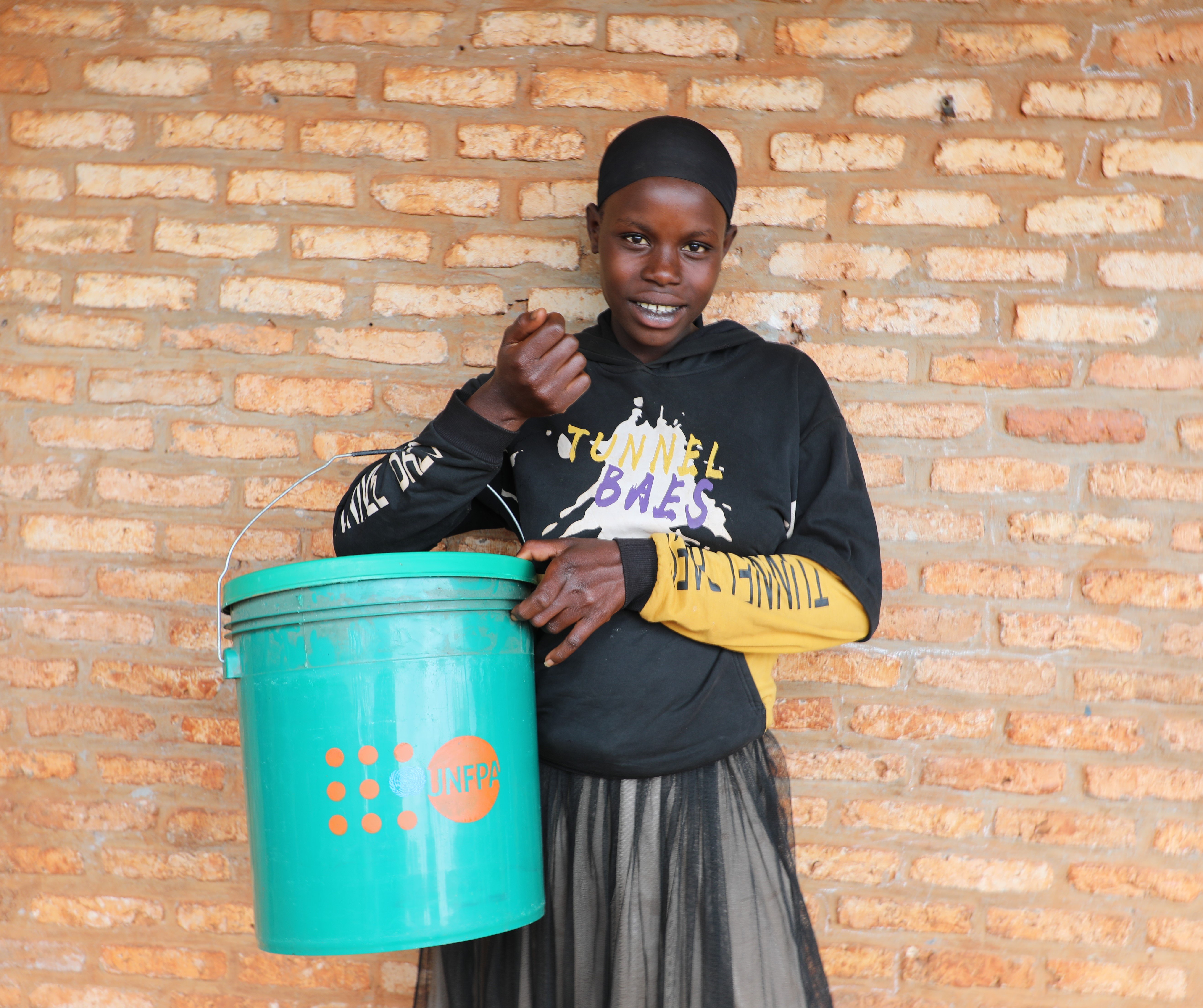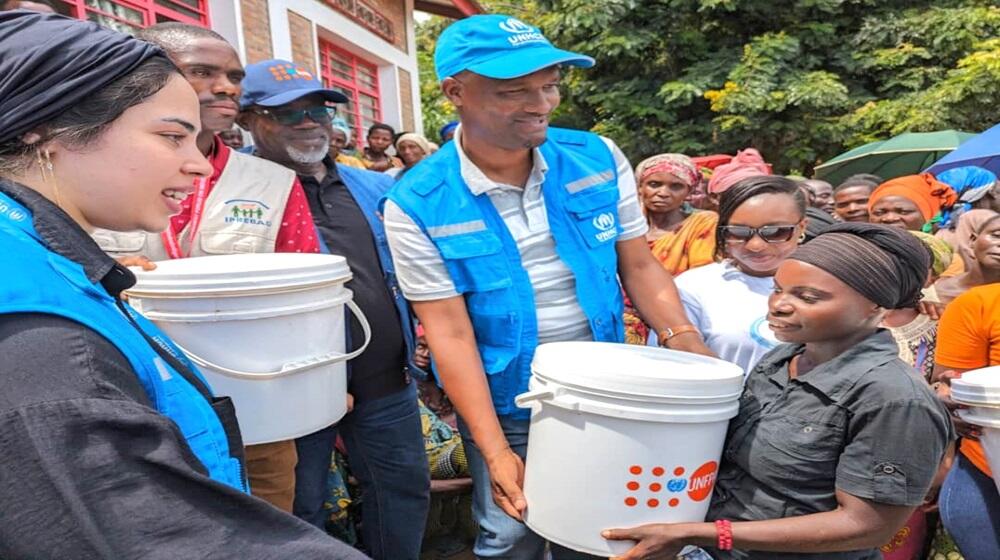The United Nations Population Fund (UNFPA) in Burundi visited five refugee camps from February 19 to 24, 2024: Bwagiriza and Nyankanda in Ruyigi province, Musasa in Ngozi province, Kinama in Muyinga province and Kavumu in Cankuzo province. Under the leadership of the Resident Representative, the UNFPA Burundi team made this visit to raise awareness, alongside the UNHCR and its partners, among the refugee population of the issues involved in combating gender-based violence, as well as reproductive health and family planning.
According to UNHCR data, 63% of refugees in Burundi are based in these 5 camps. It is therefore important for UNFPA to raise the awareness of this population and to investigate their needs to give them access to the necessary information and to family planning and anti-gender-based violence services. The aim is to contribute to the achievement of three transformative results: zero preventable maternal deaths, zero unmet need for family planning and zero gender-based violence and harmful practices.

This was also an opportunity to donate 400 dignity kits to women and girls of childbearing age to meet the most basic needs in this humanitarian situation. For Darlène Niyokwizera, the dignity kit she received will be very useful, especially now that she's pregnant.

Emelyne Tulizwe, 18, also expresses her gratitude after receiving her dignity kit. She points out that the entire dignity kit includes essential items for a woman or a young girl. “The pomade, the loincloth, the t-shirt, the underwear, the soap, not forgetting the bucket, all contribute to very good hygiene and to preserving the dignity of the girl and the woman. All I can say is just thank you", says Emelyne. She also appreciated the awareness-raising sessions on the fight against gender-based violence. It was an opportunity for her to learn about the different forms of violences that girls and women can be subjected to, and to be reassured that mechanisms for protection and response to GBV are available.

Overall, the camps are hosting a total of 87,712 refugees,divided between urban refugees (32,664), the Kavumu camp (18,104), Nyankanda (11,373), Bwagiriza (9,697), Musasa (8,544) and Kinama (7,330). In the camp, there is a flagrant lack of sexual and reproductive health information and education services. What's even more, the socio-cultural practices of certain tribal groups encourage behavior that is a source of multiple forms of gender-based violence (GBV), including early marriage. Another factor that increases the risk of GBV is the precarious economic situation of the refugees, who practically live on food assistance. This was UNFPA's great motivation in helping to change these practices and aiming to improve the Reproductive Health situation and ensure a better level of well-being for each of the camp inhabitants by collaborating with several stakeholders.
By Queen BM Nyeniteka


